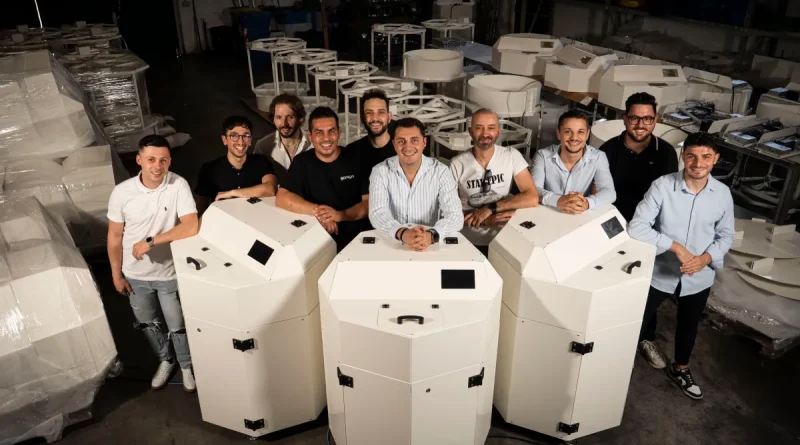Ganiga to Showcase Waste-Sorting Robots at TechCrunch Disrupt 2025
While recycling is well-known for its ecological benefits, less than 10% of plastics worldwide are currently recycled. Ganiga Innovation is working to change this statistic by implementing AI-driven robotic waste bins.
The Italian startup Ganiga has launched three cutting-edge products aimed at improving waste disposal and recycling practices. The first is a series of robotic waste bins called Hoooly, which leverage generative AI to determine if items are trash or recyclable materials, sorting them appropriately. The second offering is a smart lid that can be fitted to existing bins, providing the same capabilities as their larger counterparts.
In addition, Ganiga has developed a software solution that allows businesses to track their waste generation and offers insights to help reduce waste.
Ganiga will present its technology at this year’s Startup Battlefield competition during TechCrunch Disrupt 2025, set to take place from October 27 to 29 at Moscone West in San Francisco.
Nicolas Zeoli, the founder and CEO of Ganiga, expressed to TechCrunch his long-held dream of creating an innovative company on par with giants like Facebook or Apple.
He decided to focus on waste management due to the urgent issues it presents, especially in his native Italy, where it was clear that insufficient action was being taken.
“This is a matter we all need to confront,” Zeoli stated. “My research indicates that over 100 million tons of plastic are produced globally each year, yet only 9% is successfully recycled. It’s a critical situation.”
TechCrunch Event
San Francisco
|
October 27-29, 2025
Founded by Zeoli in 2021, Ganiga unveiled its first prototype in 2022. He articulated that the aim of creating a waste bin is to give individuals a designated space for waste disposal, ensuring appropriate recycling and sorting while generating valuable data for future use.
Zeoli further noted that waste management can be expensive for companies, especially in Europe, where many organizations have to adhere to ESG standards. He hopes that Hoooly will assist businesses in tracking their waste efficiently, potentially reducing both waste and associated costs.
Since initiating sales of its bins in 2024, Ganiga has successfully sold over 120 units to customers, including clients like Google and various airports in Bologna, Venice, and Madrid.
In 2024, Zeoli revealed that the firm earned $500,000 in revenue, which has already surged to $750,000 in the initial nine months of 2025.
Ganiga has attracted $1.5 million in pre-seed funding from investors such as the clean tech venture capital firm NextSTEP and NextEnergy Capital. The company is currently aiming to raise $3 million in its seed funding round.
Looking ahead, the startup plans to introduce a new product named Hooolyfood in November, a software solution that leverages image analysis to accurately assess food waste. Zeoli expressed interest in developing additional software-focused products in the future, informed by data from their existing bins and software.
Although Ganiga has primarily focused on the European market, Zeoli has ambitions to expand into the U.S., with considerations of relocating the company’s headquarters there by 2026.
“Ganiga is the first startup worldwide to provide an entire airport with smart bins,” Zeoli remarked. “This is significant because we are offering a complete, market-ready product, not just a prototype.”
To engage with Ganiga in person, explore more pitches, participate in valuable workshops, and connect with industry leaders, find out more about this year’s Disrupt event happening from October 27 to 29 in San Francisco.




